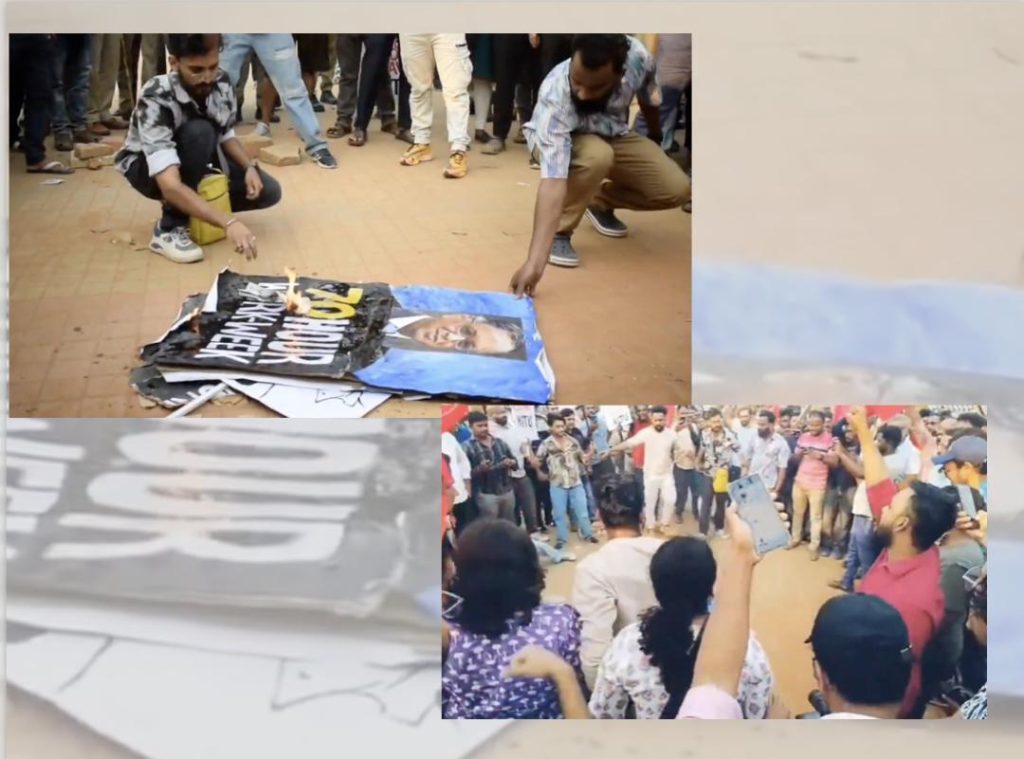
IT Employees Burn Murthy, L&T Chief’s Effigies for Proposing Longer Workweeks
The IT industry is often touted as one of the most lucrative and sought-after sectors in the world. However, the reality on the ground is far from it. Despite the high salaries and perks, many IT employees in India face exploitative work practices, long working hours, and a lack of work-life balance. Recently, the situation took a turn for the worse when two prominent industry leaders, Narayana Murthy, the founder of Infosys, and SN Subrahmanyan, the chairman of L&T, proposed longer workweeks for IT employees. The proposal was met with widespread outrage and resentment, leading to a protest by IT employees in Bengaluru, where they burnt effigies of the two leaders.
The protest was organized by KITU (Karnataka IT Union), an IT employees’ union in Karnataka, which has been demanding better working conditions and an end to exploitative practices in the industry. The union has been vocal about the issues faced by IT employees, including long working hours, no overtime pay, and a lack of job security.
Murthy, in a recent interview, had suggested that IT employees should be willing to work 70-hour workweeks to remain competitive in the global market. Subrahmanyan, on the other hand, had proposed that employees should be willing to work 90 hours a week to achieve success. These proposals were met with widespread criticism from IT employees, who felt that they were being asked to sacrifice their personal lives and well-being for the sake of the industry.
The protest by KITU began at 11 am on Monday, with hundreds of IT employees gathering at the Town Hall in Bengaluru. The employees, dressed in their formal attire, carried placards and banners with slogans like “No to Longer Workweeks” and “Respect IT Employees’ Rights”. Despite the efforts of the Bengaluru Police to stop them, the employees went ahead with their protest, burning effigies of Murthy and Subrahmanyan.
“We are not against the IT industry, but we are against the exploitation of IT employees,” said a KITU spokesperson. “We demand better working conditions, a fair wage, and an end to long working hours. We will not tolerate any more exploitation of our rights and dignity.”
The protest was peaceful, with the employees chanting slogans and singing songs against the exploitative practices. The Bengaluru Police, however, were present in large numbers, trying to prevent the employees from burning the effigies. Despite the police’s efforts, the employees went ahead with their protest, and the effigies were eventually burnt.
The incident has sparked a heated debate in the IT industry, with many employees and experts weighing in on the issue. While some have criticized the employees for their protest, others have supported them, saying that they are fighting for their rights and dignity.
The IT industry in India has always been known for its fast-paced and demanding environment. However, in recent years, there has been a growing trend of employees seeking better working conditions and an end to exploitative practices. The protest by KITU is just the latest example of this trend, and it is likely to have far-reaching consequences for the IT industry in India.
In conclusion, the protest by IT employees in Bengaluru against the proposals by Murthy and Subrahmanyan is a clear indication of the growing discontent among IT employees in India. The employees are demanding better working conditions, a fair wage, and an end to long working hours. It is up to the industry leaders and policymakers to listen to their demands and take concrete steps to address their concerns.
Source:






